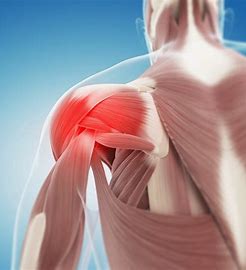+918048128529

This is your website preview.
Currently it only shows your basic business info. Start adding relevant business details such as description, images and products or services to gain your customers attention by using Boost 360 android app / iOS App / web portal.
Frozen shoulder is also known as adhesive capsu...

Frozen shoulder is also known as adhesive capsulitis. It is characterized by painful and restricted shoulder movements. The capsule of shoulder joint becomes thickened, inflamed which further leads to spasm of surrounding muscles and restriction of joint movements. Simple daily activities like wearing clothes, combing hair, etc becomes difficult. Sleep is disturbed in most of the cases. The quality of life is impacted to the great extent. These patients also complain of neck pain due to overuse of neck muscles to compensate the loss of shoulder movements. Risk factors • Age: 40-60 years of age • More common in women • Shoulder injury • Uncontrolled diabetes • Stroke • Hypothyroidism/ hyperthyroidism Symptoms and signs Frozen shoulder occurs in 3 stages • Freezing stage: In this stage, the shoulder becomes stiff and is painful to move. The pain slowly increases and worsens at night. This stage lasts 6 weeks to 9 months. • The frozen stage: In this stage, pain lessens, but the shoulder remains stiff. This makes it more difficult to complete daily tasks and activities. This stage lasts 2 to 6 months. • The thawing (recovery) stage: In this stage, pain lessens, and ability to move the shoulder slowly improves. Full or near full recovery occurs as normal strength and motion return. The stage lasts 6 months to 2 years. Diagnosis: Diagnosis of frozen shoulder in most of the cases in clinical. X ray is obtained to rule out other causes like arthritis. Treatment • Hot and cold compress • Physiotherapy exercises • TENS • Tight sugar control • Medicines like nonsteroidal anti-inflammatory drugs, neuromodulators • Dry needling for muscles around joint • Pulsed Radiofrequency of nerves around the joint • Intraarticular steroid injection

